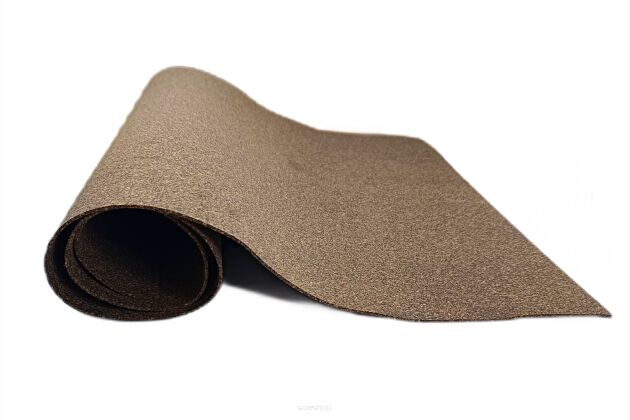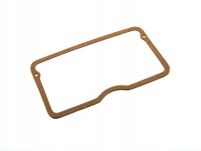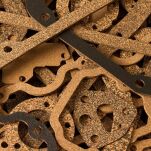Rubber Cork for seals 1000x1000x3mm
TECHNICAL PARAMETERS
Length: 1000mm
Width: 1000mm
Thickness: 3mm
Suitable for most lubricating fluids.
Density :550-750kg/m3,
Hardness : 50-70 (Shore A)
Compressibility 35-50% (400 psi)
Tensile strength (min) : 0.8 (Mpa)
- Add feedback:
-
Availability:
 Exists
Exists
-
- £28.60 / piece
- piece
-
Paypal, Payment via bank transfer, PayU, Przelewy24
Rubber cork is a type of material made of cork, which is mixed with rubber. It is a composite with elastic properties, moisture resistance and high mechanical strength. Rubber cork is used in various fields, such as the automotive industry, construction, production of washers, gaskets, as well as in the production of footwear. By combining rubber and cork, rubber cork combines the features of both of these materials: flexibility, abrasion resistance and thermal and acoustic insulation.
Rubber cork, thanks to its unique properties, is used in various fields. Here are some of the most common applications:
- Seals and washers - Rubber cork is used in the production of seals and washers in the automotive, machinery and construction industries. Its elasticity and resistance to moisture make it an ideal material for sealing joints.
- Acoustic insulation – Thanks to its structure, rubber cork effectively dampens noise, which is why it is used to produce insulating materials, such as acoustic mats in construction, especially in places requiring noise reduction.
- Thermal insulation – Rubber cork also has insulating properties, which is why it is used to insulate pipes, installations and devices requiring protection against heat loss.
- Footwear – In footwear production, rubber cork is sometimes used to produce soles, especially in work or sports shoes, thanks to its flexibility, abrasion resistance and comfort of wearing.
5.Automotive industry – It is used in the production of elements such as shock absorbers, suspension elements, as well as a material that dampens vibrations in cars and other vehicles. - Sporting goods – Due to its properties, rubber cork is also used in the production of some sports equipment, such as exercise mats, balls or protectors.
- Furniture industry – It is used to produce protective pads for furniture, which prevent scratching of surfaces or eliminate noise when moving furniture.
Rubber cork is valued for its versatility, flexibility, durability and ability to absorb vibrations and noise.
Rubber cork is resistant to moisture. By combining cork, which naturally has waterproof properties, with rubber, which additionally increases the flexibility and durability of the material, rubber cork is characterized by resistance to water and moisture. This makes it an ideal material for applications in environments where there is contact with water, such as seals, washers or elements in the automotive, construction and many other industries, where moisture can be a factor influencing the durability of materials.
Rubber cork is resistant to oily liquids, the degree of this resistance depends on the exact composition of the material and the type of rubber used. Usually, rubber cork shows good resistance to oils, fuels, greases and other oily substances, because rubber, being part of the composite, is a material resistant to oil.
Additionally, the cork, which is part of rubber cork, also shows some resistance to absorption of liquids, which increases its functionality in difficult conditions.
Ask a question about the product. Our team will be happy to provide a detailed answer to your inquiry.




